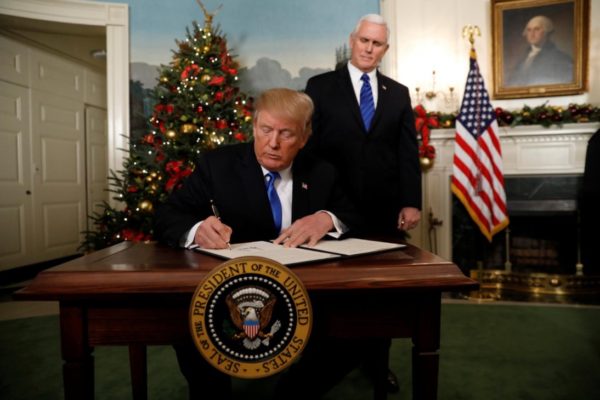
EU, Japan Plan Against U.S. on Tariffs
Trade chiefs from countries of the European Union (EU) and Japan are holding talks concerning the decision by U.S. President Donald Trump to impose tariffs on steel and aluminum. The meeting has been scheduled amid fears the tariffs could elicit trade war between U.S. and its allies.
EU Trade Commissioner Cecilia Malmstroem is meeting Saturday in Brussels with Japanese Economy, Trade and Industry Minister Hiroshige Seko. U.S. trade representative Robert Lighthizer is expected to join the two for broader talks later Saturday.
The EU is seeking clarity from Washington about whether the 28-nation bloc will be exempted from the U.S. tariffs, just like it did to Canada and Mexico.If not, the EU has threatened retaliatory tariffs on U.S. products. Key U.S. trading partners and businesses have warned the tariffs could backfire, provoking a trade war and hurting allies more than China, their main target.
Recently, the International Monetary Fund’s Managing Director Christine Lagarde has said that nobody wins in a trade war and that the macro-economic impact of U.S. tariffs on imports would be serious if other countries respond with tariffs of their own. “The macro-economic impact would be serious, not only if the United States took action, but especially if other countries were to retaliate, notably those who would be most affected, such as Canada, Europe, and Germany in particular,” Lagarde said on French radio RTL. On Tuesday, U.S. President Donald Trump reiterated his plan to slap big tariffs on imports of steel and aluminum, warning the European Union it would get hit with a “big tax” for not treating the United States well when it comes to trade. “In a so-called trade war, driven by reciprocal increases of import tariffs, nobody wins, one generally finds losers on both sides,” Lagarde said, adding that she hoped that Trump would not implement the tariffs threat. “We recommend an agreement between the different parties, and talks, talks,” she said. However, she indicated that Trump might have a case for threatening to slap tariffs on some imports, saying there were a few good reasons to protest against the current situation. “There are some countries in the world that do not necessarily respect the World Trade Organisation agreements, and which impose technology transfers. China is a case in point but it is not the only country with such practices,” she said.
